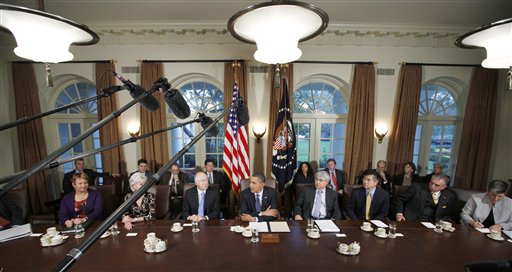Over the years, conservatives have established some pretty settled science about why liberalism doesn’t work and now there’s a new hypothesis out there. How long will it be before it’s acknowledged by all the right people to be settled science too?
Videos by Rare
First there was Ludwig von Mises. Just as Bolshevism was getting out of the starting gate in 1920, he asserted that socialism could not work because it couldn’t compute prices. Then he wrote a book about it titled “Socialism.”
Now that the laboratories of socialism in China, Russia, and India, in that order, have given up, it’s fair to say that the old guy was on to something.
Then in about 1950 came another Austrian, Friedrich von Hayek. He argued that the man from Washington couldn’t out-perform a million consumers and producers, even if the expert in Washington was a Nobel laureate and the producers and consumers were bitter clingers from flyover country. Government bureaucracy is unable to accumulate the knowledge it needs to run things.
Later, Hayek wrote about “The Fatal Conceit: The Errors of Socialism” to give this idea a bit more showroom shine. On this view, it is a fatal conceit for a president and his credentialed health care experts to imagine that they can reorganize the health care system without creating the mother of all disasters.
Then, at last, a Yank and a Brit got into the action in the 1960s: James Buchanan and Gordon Tullock. They argued in “The Calculus of Consent” that all legislative voting systems involve log-rolling, the purchase of swing voters to pass a bill. They made it pretty obvious that almost all voting systems were inherently unjust, because some subset of the community will inherently force its grand plan upon the entire community. Sound familiar?
In the 1980as, Charles Murray came alone. In “Losing Ground,” he reported that back in the 1960s, liberals had enthusiastically funded research to measure the success of their Great Society programs. But when the results showed that the programs were no good at all, liberals shelved the results and kept on spending.
Now we have a new theory from Jay Cost, The Weekly Standard’s first-rate election analyst, that he calls “The Real Price of Politics.” Sure, Obama and company knew what they had to do with Obamacare: they had to get all the special interests on board and avoid the disaster of Hillarycare.
Obama and congressional Democrats had to buy off a motley crew of factions. Indeed, this was one of their principal concerns: luring on board the “stakeholders” who had stymied reforms before.
“Luring on board” meant buying off the organized interests, “doctors, hospitals, drug manufacturers, insurance providers, the AARP, labor unions.”
But the result was to hammer millions of unorganized Americans, violating an “unstated rule of politics… that policy should leave middle-class families better off, or at least no worse off.” Obamacare has become a political disaster because the math in the log-rolling tactics described in “Calculus” doesn’t add up any more. There is no more “tax that fellow behind the tree” because that fellow is you and me.
Nothing new here, you say. Margaret Thatcher said it first when she said that socialists always run out of other peoples’ money. That was in the 1970s.
Nothing new at all. Each of these ideas merely rings the changes on the settled science that socialism cannot work.
How’s that denial doing, liberals?



